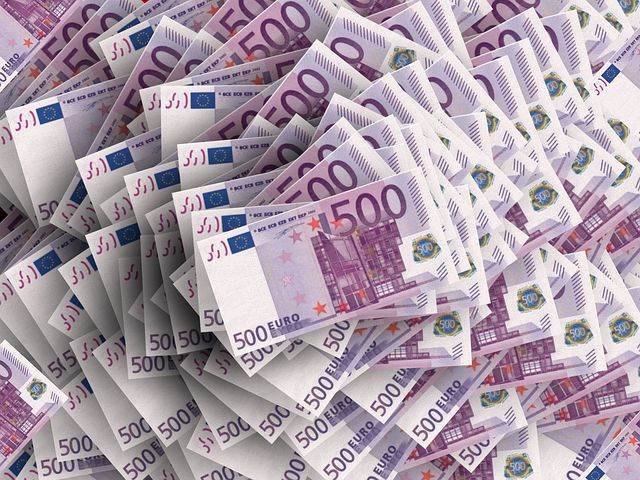So far this week the Euro has gained 0.21 percent against the US dollar, posting gains for the second consecutive week.
On Monday, markets learned that the European commission's economic sentiment indicator went up in June, increasing from 67.5 to 75.7, the largest increase ever recorded. The Eurozone's business climate indicator went up from -2.41 to -2.26 in June, signaling an upswing in business activity and an improvement in the business climate.
 The Statistical Office of the European Union also released Germany's Harmonized Index of Consumer Prices, which stood at 0.8 percent (year-to-year) in June, after being at 0.5 percent in the previous month. The consumer price index (year-to-year) went up to 0.9 percent from 0.6 percent. That day, the Euro advanced 0.21 percent against the dollar.
The Statistical Office of the European Union also released Germany's Harmonized Index of Consumer Prices, which stood at 0.8 percent (year-to-year) in June, after being at 0.5 percent in the previous month. The consumer price index (year-to-year) went up to 0.9 percent from 0.6 percent. That day, the Euro advanced 0.21 percent against the dollar.
On Tuesday, we got June's preliminary Eurozone inflation figures. The core Consumer Price Index (year-to-year) stood at 0.8 percent after being at 0.9 percent during the previous month. Conversely, the Consumer Price Index (year-to-year) went up to 0.3 percent, after being at 0.1 percent in May. This figure was over the analyst's expectations, however, the Euro barely reacted to the news, closing the session on the negative territory, losing 0.08 percent.
The European Central Bank continues with its attempts to aid the performance of the Eurozone economy which has, just like the rest of the world, been heavily affected by the lockdown that was imposed to stop the advance of the coronavirus outbreak. The Eurozone's gross domestic product went down by 3.6 percent, dropping less than expected but it was still the biggest drop in the GDP in the history of the union. The ECB's President, Christine Lagarde said that the bank expects the GDP to fall 8.4 percent this year, and an increase of 5.2 percent in 2021.
In its last meeting, the bank decided to expand its pandemic emergency purchase program by 600 billion euros and to leave the interest rates unchanged. Cutting the interest rates further continues being a possibility, however, at the moment expanding the quantitative easing program is considered a more efficient option at the moment.
Until now, the European Central Bank's balance sheet has expanded to over 50 percent of the Eurozone's gross domestic product, following the Bank of Japan's path. Investors expect the bank to expand its bond purchasing program by an extra 500-600 billion euros. Some analysts even expect them to expand it by an additional trillion Euros over the next couple of years.
The bank's bond purchase program has been heavily criticized in the past. In fact, a German top court ruled against the program, which according to ECB Governing Council member, Paolo Hernandez de Cos won't have any influence on the bank's monetary policy decisions.
On Wednesday the European Central Bank board member, Fabio Panetta commented that the Euro area has been relatively successful in terms of managing the consequences of the crisis, though he warned against being overly optimistic regarding the positive news given the prevailing uncertainty.
"The euro area has so far weathered the consequences of the shock about as well as could be expected," he commented, "Positive indications need to be taken with a pinch of salt since the high levels of prevailing uncertainty make it difficult to rely on past regularities," he added.
The Eurozone members are now focused on reaching the recovery fund deal, which according to the French President, Emmanuel Macron is an absolute priority. As expected, there has been strong opposition from several northern European countries, which insist on providing loans instead of grants to the Eurozone members.
The markets also learned Germany's Unemployment Rate for June, which was at 6.4 percent after being at 6.3 percent on the previous month. Unemployment Change for June rose by 69K after rising by 238K on the previous month. Retail sales also climbed by 13.9 percent (month-to-month) in May, after dropping 6.5 percent in April.
